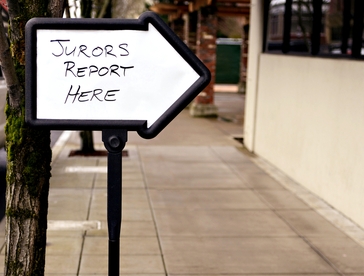
A federal judge questioned prospective jurors closely Tuesday for signs of anti-China bias in the industrial espionage trial of a U.S. citizen who prosecutors say fed secrets to a Chinese company.
Prosecutors allege that Walter Liew, who is of Malaysian descent, stole manufacturing secrets from E. I. du Pont de Nemours and Company and sold them to a company the Chinese government purportedly controlled. His lawyers say there was little secret about DuPont’s techniques for making titanium dioxide, a white pigment used in painting paper and plastic, and that the Chinese government did not orchestrate Liew’s activities or that of a Chinese company, the Panang Group, at the center of the case. (We previously commented on the government’s inability to serve the foreign-based company.)
Trial in United States v. Liew kicked off in San Francisco federal court yesterday, with the judge telling jurors to expect trial to last for seven weeks. On the second day of jury selection Tuesday, Judge Jeffrey S. White questioned a pool of 76 jurors about their attitudes toward China and about national security issues. The jurors filed in at 8:30 a.m., representing a cross-section of San Francisco Bay Area citizenry: bespectacled geeks, young men in hoodies, older men in denim jackets and jeans, women in stylish coats. Among the prospective jurors were about a dozen engineers.
By 1:30 p.m., White had sworn in his jury of 10 women and six men.
White opened voir dire Tuesday by asking potential jurors whether they had a problem with American individuals or companies doing business with China or Chinese companies. Several responded that they did. One man in the dairy business who said he relies on seeds from abroad said: “I trust Chinese production a lot less than I used to.” A software developer who has business dealings with China recounted “pretty miserable experiences” with counterparts in that country. Both were eventually excused from jury service in the case.
White also asked the prospective jurors whether they were disposed to being suspicious of a defendant because he had conducted business with a Chinese company, or whether they believed American companies and citizens should not conduct business in China. None raised their hand.
A half-dozen people responded in the affirmative when Judge White asked whether they spoke or read Mandarin or Cantonese.
A second group of questions from Judge White related to U.S. national security. Although the judge did not mention China, several jurors volunteered they did not trust the country. The man in the dairy business said: “China is a little bit of a touch-button for me but I’ll do my reasonable best” to be fair and impartial if chosen for the jury.
A woman said she was aware of national security issues, including “that one guy who went to Russia.” Did she mean NSA leaker Edward Snowden, Judge White asked? “Yeah, Mr. Snowden,” she said.
“I’ve told you this case does not involve lead paint or Edward Snowden or the NSA,” Judge White reminded the prospective jurors.
After attorneys for both sides questioned the prospective jurors, Judge White returned to his national security question, seeking to clarify it. He repeated that “this case has nothing to do with Mr. Snowden or Private [Bradley] Manning or metadata. … [T]he allegations have to do with economic issues and economic espionage.” Rephrasing, he asked the would-be jurors whether they were concerned that American intellectual property had been “severely compromised in recent years.” Several raised their hands to answer yes, with one explaining: “One of my concerns is China.”
Another expressed his “general impression” that “some countries look the other way with regard to such things as patents and IP and I think China’s one of those countries.”
While the prospective jurors seemed generally engaged and alert during the questioning, at least two dozed off during extended questioning by Liew’s lawyer about their experiences with non-disclosure agreements. Judge White struck one of them from the jury pool. “It’s a very bad harbinger for a seven-week trial when he’s sleeping through stimulating questions,” he said.
Judge White also struck several jurors for such things as their stated distrust of the FBI, which investigated Liew; for pending felony criminal charges; and for an acknowledged pro-DuPont bias. He struck dozens of others based on their claims that sitting on the jury for seven weeks would cause them undue hardships.
Robert Maegerle—a former DuPont employee—and a U.S. corporation called USA Performance Technology, Inc. are codefendants. The government has charged Liew and USAPTI with violations of the Economic Espionage Act related to the alleged trade secret misappropriation. Maegerle is charged with Liew and USAPTI in an alleged conspiracy to commit theft of trade secrets and other trade secret offenses. The United States has also charged Liew, Maegerle, and USAPTI with offenses relating to obstruction of justice. Additionally, Liew is charged with filing false tax returns and bankruptcy fraud.
Opening statements are scheduled for Wednesday morning. Follow us on Twitter at @TS_Watch for up to the minute coverage of the trial.

